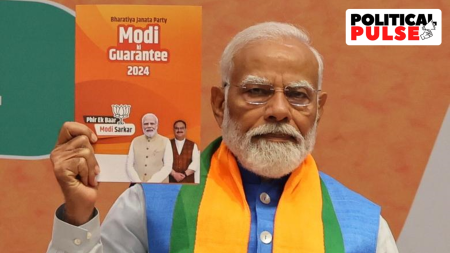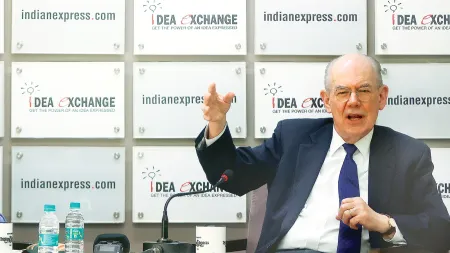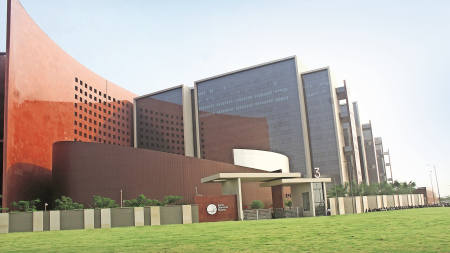- India
- International
The push Indian healthcare needs
Robust intellectual property rights regime holds the key to incentivising research on medicines
 Photo for representational purpose
Photo for representational purpose
One of the 17 Sustainable Development Goals (SDGs) articulated by the United Nations in 2015 is to “Ensure healthy lives and promote well-being for all at all ages”. India is among the countries that agreed to this sustainable development agenda. Governments, businesses and civil society must combine to mobilise efforts to achieve it by 2030. There is also little doubt that ongoing innovation, both in drugs that cater to unmet medical needs and in the delivery of health services, is essential for achieving the health goal. Fundamental to innovation is a world-class intellectual property system that provides the assurance needed to incentivise research and encourage sustained investment over many years in order to develop new products and technologies. It is important for India to enforce an intellectual property (IP) environment that recognises the value of medicine and rewards innovation.
The mapping of the human genome gave the confidence that medical research will race ahead with new R&D and the pace of medical discovery will witness a huge jump. In fact, Francis Collins, former director of the National Human Genome Research Institute (NHGRI) in the US, noted that the genome could be thought of in terms of a book with multiple uses and called it a transformative textbook of medicine with insights that will give healthcare providers immense new powers to prevent, treat and cure disease. Breakthroughs in related fields also showcase accelerated research outcomes in health and medicine: Big data and analytical sciences, technological breakthroughs in computer-based simulation and telemedicine and the convergence of different scientific streams hold great promise for faster innovation of better diagnostic tools, improved treatment protocols, targeted drugs, next-generation medical devices, etc.
Globally, the research-based pharmaceutical industry has invested close to $58.8 billion in R&D in 2015; more than 7,000 medicines are under development. Globally, great progress in medicine innovation has been made. Unfortunately, the pace of biomedical innovation has not been up to expectation in India. As a result, Indian patients have not fully reaped the benefits of the unlimited potential of medical innovation and new drug discovery. The basic problem seems to be that innovation is not adequately incentivised and IP is not fully protected in India. It is crucial for innovative biopharmaceutical companies to reap the benefits provided by a robust IPR system that ensures investments in developing life-saving medicines are justified. New medical technologies and treatments are born out of proprietary inventions critical to improving patient care, spurring economic growth and strengthening an innovation economy. For the long-term benefits of improving patient health and economic growth, innovators must be able to secure and effectively enforce patents, and protect their intellectual property.
At present, the importance of building synergies and providing adequate funding for medical research is underestimated. Consequently, there is a severe lack of public-private collaboration in medical research and delivery. The only successful example of public-private partnership in medical and pharmaceutical research that I know of was undertaken at the National Chemical Laboratories (NCL), Pune, under the noteworthy leadership of R.A. Mashelkar. He pioneered collaborative research between the NCL and private corporate sector scientists, which reportedly produced some initial breakthroughs. The current state of play is perhaps not so robust because one hardly hears of the NCL and any attempts at public-private partnership in medical research these days.
Today, there is a dire need for government, industry, academia and non-profit organisations to come together and create environments that are receptive to innovation. The necessary condition for this is to build trust and genuine partnership between different stakeholders. For this, the lead must surely come from the government, which must undertake the responsibility to pave the road towards scientific progress. We must aggressively promote medical research and drug discovery, encourage innovators and those who fund them, and fuel job growth in the medical sector. We must find ways to accelerate the drug approval process, and speed up delivery of effective medicines, that target diseases specific to India. India has many components of an effective regulatory system, such as institutional capacity across centre and state regulators and a robust technical framework. Policy incentives are needed to reverse the present rather dismal situation, in which most new discoveries and compounds never make it from the

laboratory to even the clinical testing stage, let alone being introduced as new drugs and reaching the masses. A strong IPR framework would deliver great benefits to India, including increased investment in clinical research, high-paying and skilled jobs, a transfer of medical knowledge and earlier access to new medicines. In a recent US poll, voters unanimously supported medical discovery as a means to enhance treatments and cures. A whopping 95 per cent of respondents said that they believed medical innovation is key to improving America’s healthcare system. If we conducted a similar poll in India, the results would no doubt be similar. After all, there is no doubt in anyone’s mind — be it care providers or patients — that continued breakthroughs are essential to provide better medical care and research supported by robust IP is the only way forward. It is time that the Indian government took the initiative to share the risks that are expectedly high in biomedical and biopharmaceutical R&D.
40 Years Ago
EXPRESS OPINION
More Explained
Apr 16: Latest News
- 01
- 02
- 03
- 04
- 05









































